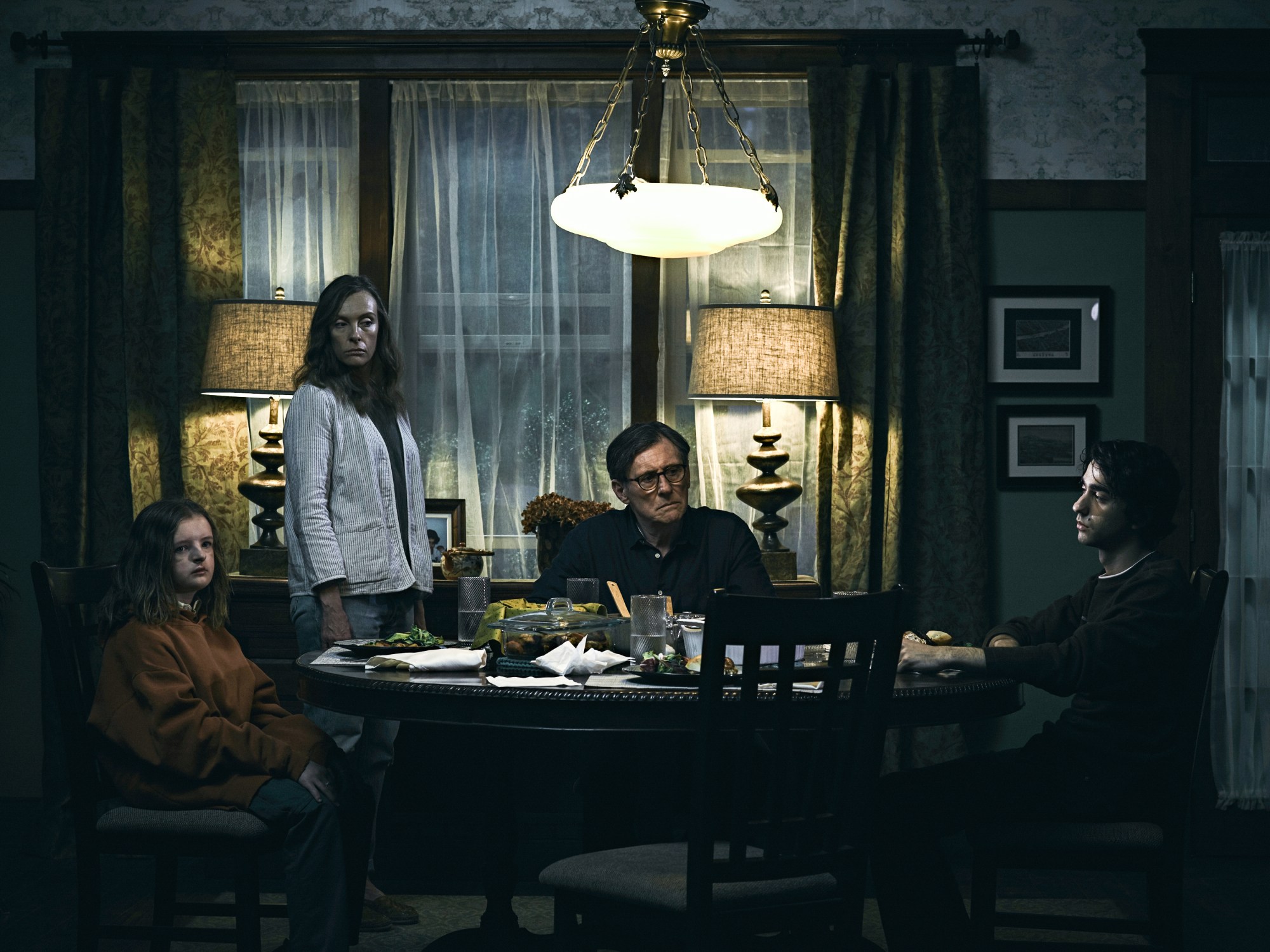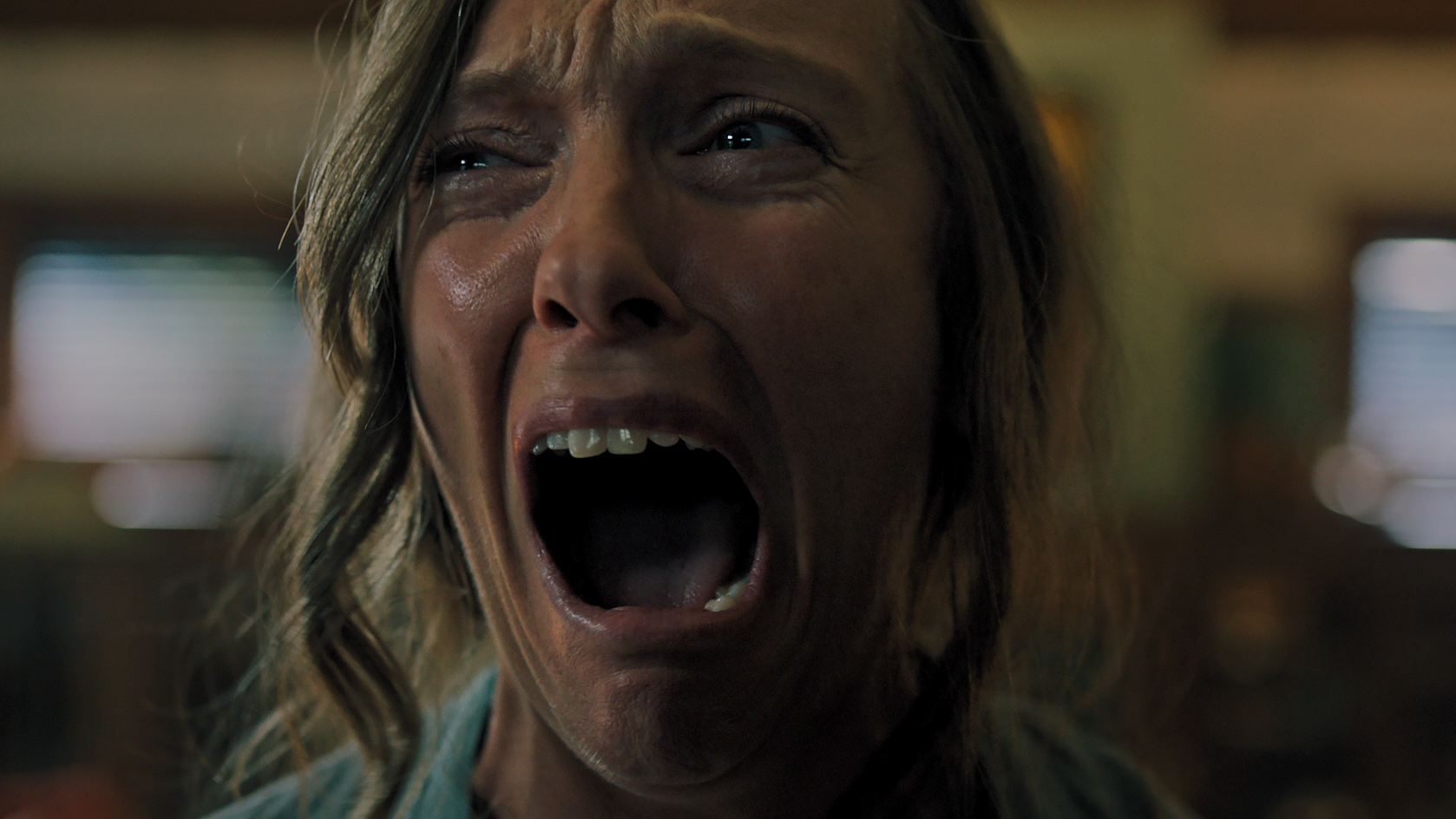Ari Aster is the 31-year-old writer and director whose debut feature has excited critics and gripped audiences with terror. It’s not an exaggeration to say that Hereditary, which became the talk of Sundance when it screened there, is stretching the horror genre in a new direction. That’s because Ari didn’t set out with a central aim to just make something that would terrify. Instead he used the genre as a vehicle to explore subjects that are inherently very bleak, and to confront those topics head on without needing to then offer up catharsis through a nice and shiny happy ending.
“I wanted to make a film about grief and trauma that took those things seriously, and the corrosive effects these things can have on the family unit,” Ari explains. “As opposed to making a movie about a family that goes through a loss, they suffer, but then ultimately their bonds are strengthened, a big trend [for movies] in America. If you make a drama about this you have a very limited audience. But what serves as a deterrent for one genre becomes a virtue in another one.” Horror offered a way to tell a story about suffering that is as dark as you can imagine — without light at the end of the tunnel– and still have an audience.

Hereditary is not your usual horror film, but it will still terrify you. The movie is merciless in what it puts you through, but never gratuitous. You will be left thinking about it for days, weeks — probably longer. What makes it really gripping is how Ari manages to so deftly turn excruciating family drama into unholy terror. It’s the work of an auteur, who invites the audience to invest deeply in his characters — before destroying them. Ari’s approach to filmmaking is deeply detail oriented — he created intricate backstories for each character to allow the actors to really understand where they’re coming from. A brilliant, award-worthy portrayal by Toni Collette of a mother dealing with family demons (in both senses of the word) and unimaginable grief, creates a deep sense of emotional wreckage. Ari nailed the casting of her two children, who each help to bring the film intensely alive. “We were auditioning the kids and they blew me away. Alex Wolff gave an incredible audition, Milly Shapiro came in and it was a huge weight off my shoulders. She’s a Broadway trained actress and won a Tony when she was ten .”
At the fast-beating heart of Hereditary is the idea of being cursed, of being unable to escape a fate that is, in this case, passed down through generations. Ari’s own family experienced a period of time in which it felt like they were doomed. “I think when horrible things are happening, especially in succession, you may feel that one is cursed to experience these things, that there is some malicious design behind it. That was part of what I was doing with the film, I wanted to make a film about suffering — but about the feelings that attend suffering — and to literalise them.” The director sees this sense of helplessness to the powers that be reflected in our current cultural situation. “The film is coming out at a time when so many people feel this way, even just politically, not just in the states but Europe too. This feeling that you’re not in control; you don’t agree with this but have no control. My life in a much larger sense is not my own. I need to come to terms or not with the state of things.”
No spoilers, but something happens in Hereditary that really messes with your mind. How did Ari approach writing and then executing on screen such an utterly disturbing scene? “That’s part of the fun of writing a horror film, the challenge of finding what will get to people. If anything, I was thinking, how do I prevent this from feeling silly? The way you do it is by doing it hard. If you take 10 steps back it’s kind of funny. I certainly wasn’t thinking ‘is this too much?’ the goal is to push it but not in a way that is gratuitous. It hits you hard but doesn’t make it easy to say this is trash, that it’s malicious, sadistic garbage.”

While a lot is being made in the press of Ari’s instant success with his first feature at a young age, he’s been at this for a while now, writing since he was a teenager and, after studying, making some incredible short films. In terms of feature films, Ari says he “had 10 scripts, but a lot of them were written in high school. Truth be told there were probably only 5 that I really wanted to make. 2 or 3 were almost made, so I got to experience what it’s like to almost get something going and have it fall apart. But I was stubborn and wanted to make these films even if they’re not commercially viable and I wanted to do it for this budget, even though it’s not realistic for a first time filmmaker.” He finally gave in and wrote something that he figured would be easier to get financial backing for. “And I’m glad that I did because ultimately I still got to make something that is personal and that I care about and the road was easier.”
So what kept Ari going, after getting knocked back and having multiple films nearly happen only to be dropped at the last moment? “It’s such a cliché and it sounds so ‘hokey’ that perseverance is the thing. I luckily had these films in my head that were very vivid, I see them so clearly, so that’s what kept me going. I see the movie and all I need is to do it, to make one. I think it helps to put the time in to really see clearly what it is you want to make and know why you want to make it, so you can justify it not only to the people that you want to convince, but also yourself.”
